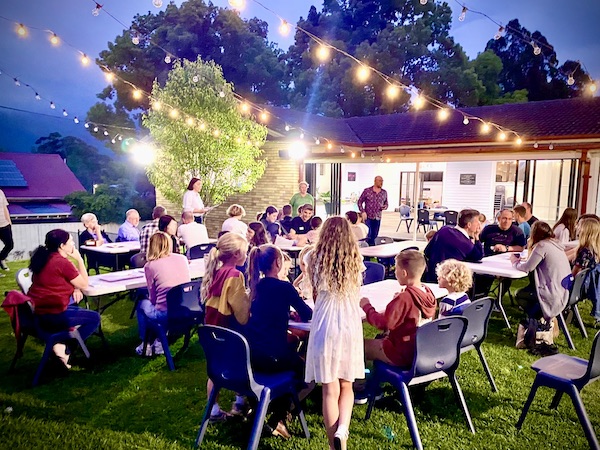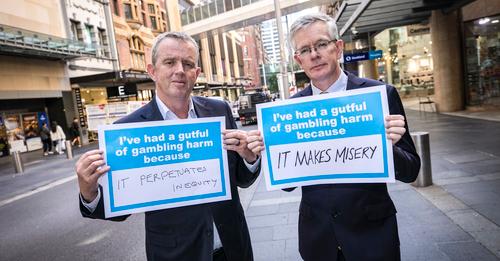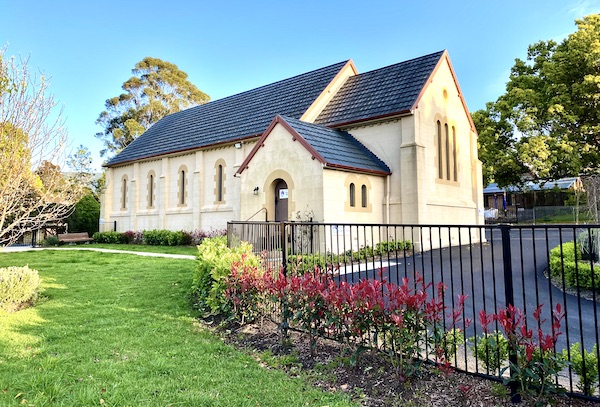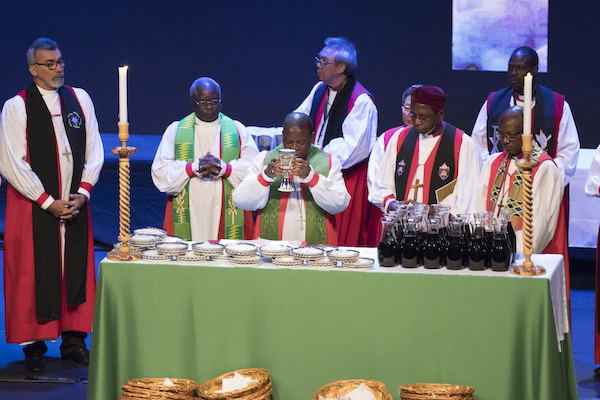Hello Sunday Night!

This weekend we’re moving our Saturday night service to the all-new time of 4pm Sunday.
As we’ve been saying for months, the only thing we’re changing is the day and the time… but everything else stays the same.
We’ll start church at 4pm, then around half an hour into the service, the children will head out to their special kids’ programs in the hall.
Then after 5:30pm it’s dinner time in the hall and on our lawn, which will be followed by lots of informal games and hanging out with people of all ages and stages, together.
Saturday night is often when celebrations, events and social occasions occur, so our members have often needed to choose between church or meeting with family, friends and community contacts.
As we seek to connect with the people in our village, valley and region, it makes sense to free up Saturday nights to enjoy hospitality with others not yet in our church, as Christ’s ambassadors.
I’m really looking forward to spending extra time with friends, family and people in my neighbourhood as we all now have an extra spot in our diaries to enjoy meals with special guests in our home… and I’m sure you’ll be able to take up the same opportunity, too.
There are many other good reasons for moving from Saturday night to Sunday, such as helping those who attend two services on a weekend, creating a day’s gap between youth group and church, and enabling people to attend church when they’re away for a weekend.
We’re praying that this change will be a great step forward as we pray that each person in our village, valley and region will know how to follow Jesus and why it matters.
See you at 9am or 4pm this Sunday… or why not both!
JODIE McNEILL









